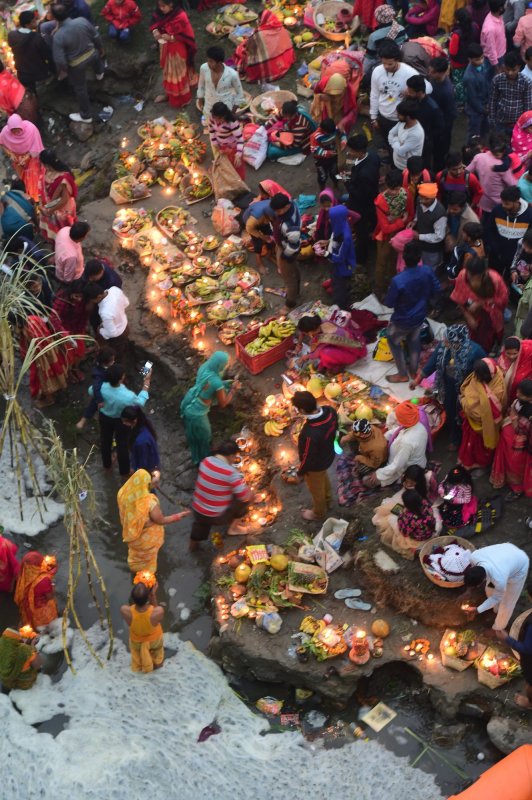Hindu devotees pray after taking a bath as part of the rituals at the end of the four-day 'Chhath Puja' festival celebrations, in New Delhi, India on November 11, 2021. The U.S. Commission for International Religious Freedom recommended India be designated as a country of particular concern of its systematic repression of minority religions. File Photo by Abhishek/UPI |
License Photo
April 26 (UPI) -- An independent, bipartisan commission has again asked the U.S. government to designate India as one of the world's worst violators of religious freedom, stating conditions in the country have "significantly worsened" over the past year and New Delhi individuals should be targeted with sanctions.
The U.S. Commission on International Religious Freedom has twice previously recommended the State Department to label India as a country of particular concern, but the federal government decided both times not to do so.
In its Congress-mandated annual report published Monday, USCIRF again recommended India to be designated as a CPC, meaning a country that engages in "particularly severe" violations of religious freedom.
The commission said that the government of Prime Minister Narendra Modi during 2021 continued with its nationalistic agenda to turn India into a Hindu state through implementing legislation and structural changes "hostile" to religious minorities.
"During the year, the Indian government escalated its promotion and enforcement of policies -- including those promoting a Hindu-nationalist agenda -- that negatively affect Muslims, Christians, Sikhs, Dalits and other religious minorities," the commission said in its report.
Critical voices of the government were harassed, investigated, detained and prosecuted under laws the USCIRF said were invoked to "create an increasing climate of intimidation and fear in an effort to silence anyone speaking out against the government."
Numerous attacks on religious minorities, particularly Muslims and Christians, were reported with many of them being violent, unproved and encouraged or incitement by government officials, the commission said, adding that during the pandemic patients received differing treatment in hospitals due to their religion.
The report also highlighted how the government has used laws to block funding to religious and charitable organizations in the country, negatively impacting minority communities.
UPI has asked India's Ministry of External Affairs for comment.
The Indian American Muslim Council, the largest advocacy group of Indian Muslims in the United States, welcomed the recommendation and called on the federal government to follow through on it.
"Given the damning information presented in this report, U.S. State Department officials must now act on the recommendations made by USCIRF by officially designating India as a CPC and by imposing targeted sanctions upon the Indian government to hold officials responsible for encouraging hate," Syed Afzal Ali, president of the IAMC, said in a statement.
The commission also recommended the State Department to designated Afghanistan for the first time in 21 years.
Nadine Maenza, chair of the USCIRF, told reporters during a press conference about the report that its cover features pictures from the Middle Eastern country to highlight its environment for religious freedom that "went into an immediate and disastrous downward spiral" following the U.S. military's withdrawal from the country in August and take over by the Taliban.
"While we had long been concerned about conditions in Afghanistan, the Taliban's return to power has had an immediate, chilling impact on religious freedom and on the broader human rights environment," she said.
Along with India and Afghanistan, Nigeria, Syria and Vietnam were recommended to be designated as CPCs while the commission asked for the re-designations of Myanmar, China, Eritrea, Iran, North Korea, Pakistan, Russia, Saudi Arabia, Tajikistan and Turkmenistan.
The commission also called for the State Department to include the nine countries of Azerbaijan, Central African Republic, Egypt, Indonesia, Iraq, Kazakhstan, Malaysia, Turkey and Uzbekistan on its special watch list of countries where governments engage in severe violations of religious freedom that do not reach the degree of CPCs.
Algeria, Cuba and Nicaragua were recommended to be kept on the special watch list.















